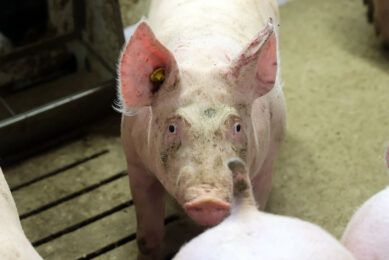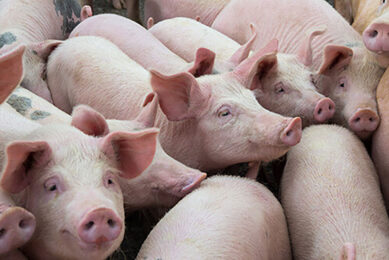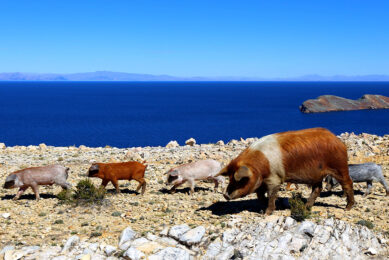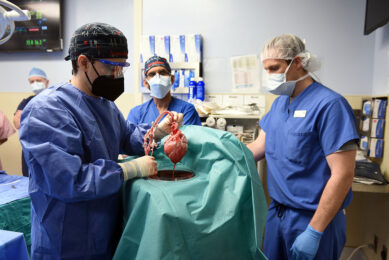H1N1 found in several Manitoba herds
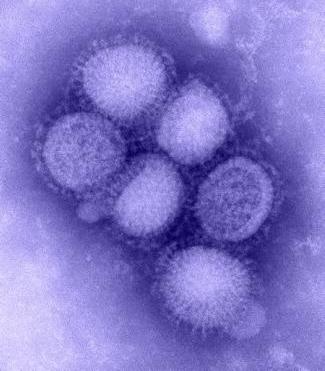
Ongoing surveillance for respiratory diseases in Manitoba swine herds has detected the novel pandemic H1N1 influenza virus in several herds, including sow barns, nursery barns, and feeder barns in various locations in the province.
The novel virus was first suspected in a sow barn when sows that had been vaccinated against common strains of influenza, began to exhibit influenza-like symptoms. Samples of from the herds in question were tested as positive for the novel H1N1 virus in Manitoba Agriculture’s Veterinary Diagnostic Laboratory, and confirmed by the National Centre for Foreign Animal Disease in Winnipeg.
Further surveillance confirmed novel H1N1 diagnoses in several additional barns housing weanling and feeder pigs. Movement of pigs from these locations was immediately limited to prevent transmission of the virus to other swine herds. Biosecurity protocols, including the reminder to staff to wear their personal protective equipment properly, were enhanced to further protect both pigs and the workers in the barns.
In the herds where the virus has been detected the disease was very mild, with pigs showing only slight signs of respiratory illness — mild cough and nasal discharge, depressed feed intake and rectal temperatures up to 40.5 deg C [104.9 deg F]. No deaths have been reported in these herds. Animals were monitored by the herd veterinarian and recovered uneventfully within 4-7 days after onset of illness. The virus did infect piglets born to infected sows, and the virus subsequently moved through the production channels to nursery, feeder and finisher sites.
Manitoba’s chief veterinary officer has sent letters to veterinarians to seek their cooperation in detecting and reporting signs of respiratory illness in swine. Letters have also been sent to pig producers encouraging the maintenance of strict biosecurity measures to safeguard the health of their herds and workers. Maintaining usual biosecurity safeguards will reduce the possibility of spread into the barn, and between barns.
In a recent policy statement, Canadian Food Inspection Agency, and the Council of Chief Veterinary Officers agreed that farms where pigs have been diagnosed with novel H1N1 do not require quarantine or eradication of the pigs. The novel virus does not behave any differently in pigs than other influenza viruses commonly detected in swine herds, and there is no evidence to indicate that animals play a significant role in the spread of the virus in the general human population.



